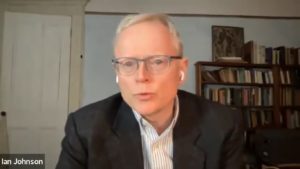
Political analyst Ian Johnson looks at the results of the now-closed meeting of the Chinese Communist Party. Technically Xi Jinping might be called China’s most powerful man, but that makes him also more vulnerable, and puts him on the firing line, writes Johnson on the Council of Foreign Relations.
Ian Johnson:
All of this raises questions about the nature and durability of Xi’s power. In journalese, Xi is the “most powerful leader since Mao.” But this has yet to be proven. Mao founded the People’s Republic, destroyed the old society of landowners and capitalists, and radically transformed Chinese society.
Mao’s eventual successor was Deng Xiaoping, who gained power in the late 1970s and held it for nearly twenty years, ruling through proxies who he discarded at will. Deng dramatically changed China’s trajectory. He gutted many of Mao’s policies and set in motion economic reforms that turned China into the economic juggernaut that it is today. His brutal 1989 crackdown on student-led demonstrators in Tiananmen Square also set the boundaries for debate in China since then, taking off the table any sort of political reform. And he began a military modernization that is bearing fruit today in the form of aircraft carriers and other advanced hardware.
By contrast, Xi has not—yet, at least—radically changed China, despite his claims to greatness. He has yet to create the conditions necessary for China to become a high-income country. His foreign policy has created a serious backlash abroad. And his domestic agenda is mired in one unimaginative crackdown after the other.
Deng put in place a rickety system of succession, but one that he regularly flouted and that only survived his two hand-picked successors, Jiang and Hu. It is this system that Xi flouted by taking a third term as general secretary on Saturday. But this is hardly the destruction of an ancient system of checks and balances. Instead, it is more like brushing away a few fig leaves to reveal what everyone knew was always there: strongman rule.
Xi’s biggest risk—and his greatest weakness as a strategist—is that he has put himself on the firing line. When things went badly for Mao or Deng, they could jettison underlings who were nominally in charge of various issues. Xi, however, has constructed a system that makes him look strong in the short run but leaves him no place to hide.
More at the CFR
Ian Johnson is a speaker at the China Speakers Bureau. Do you need him at your (online) meeting or conference? Do get in touch or fill in our speakers’ request form.
Are you looking for more strategic experts at the China Speakers Bureau? Do check out this list.
